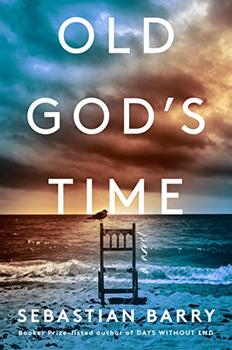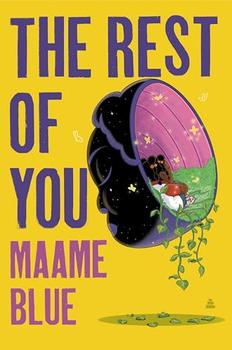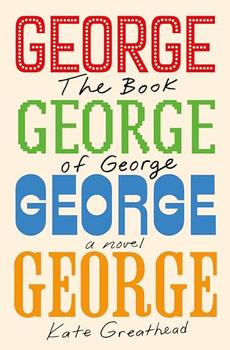Media Reviews
"[A] complex quasi-mystery...Barry's tight focus on one retired lawman and the ghosts bedeviling him provides a compelling sense of the misery the Catholic Church knew it was causing and failed to salve. An eloquent, affecting take on pedophilia." —Kirkus Reviews (starred review)
"Admirers of Claire Keegan and Niall Williams will appreciate the Irish humor that masks deep sorrow. This novel's words are well chosen, the sentences dazzle, and they all come together in a beautifully told, piercingly sad story." —Library Journal (starred review)
"The gorgeous writing and unreliable narration make it hard to put down this rewarding take on love and grief." —Publishers Weekly
"Barry masterfully explores the 'deep deep chaos' of Tom's perforated soul with poetry, poignancy, and a splash of indignant rage. The classic crime-story chestnut—a mothballed cop yanked back into action—becomes a parable of grief and theological anguish, a contemporary Irish answer to the book of Job." —Booklist
"Few can write like Sebastian Barry, there is a real thrill as each sentence unfolds. Old God's Time is a portrait of a good man facing the failings of his past. It is wonderfully alive because Barry is so attuned to the human condition, to the poetry in ordinary lives. Full of love and grief and heartache, this is an unforgettable novel from one of our finest writers." —Douglas Stuart, author of Shuggie Bain
This information about Old God's Time was first featured
in "The BookBrowse Review" - BookBrowse's membership magazine, and in our weekly "Publishing This Week" newsletter. Publication information is for the USA, and (unless stated otherwise) represents the first print edition. The reviews are necessarily limited to those that were available to us ahead of publication. If you are the publisher or author and feel that they do not properly reflect the range of media opinion now available, send us a message with the mainstream reviews that you would like to see added.
Any "Author Information" displayed below reflects the author's biography at the time this particular book was published.
Reader Reviews
Write your own review
Cathryn Conroy
A Profound, Extraordinary Work of Fiction, but Oh, It Is a Dark and Desolate Tale This is a profound, extraordinary work of literary fiction, but it's not easy to read for two reasons. First, it is written in a kind of stream of consciousness that flits from one thought to another and then back again. Second, the subject matter—Irish Catholic priests sexually abusing young boys and girls—is abhorrent, but a vitally important tale to tell.
Masterfully written by Sebastian Barry, this book, which was longlisted for the prestigious Booker Prize, tells the life story of Thomas Kettle. We meet Tom at age 66 in the 1990s as he is settling into a lovely retirement flat attached to a Victorian castle overlooking a busy harbor in Dalkey, a suburb of Dublin. Tom has retired after working for decades as a garda (police officer). He is a widower; he and his beloved wife, June, had two children. Winnie studied to be an attorney, and Joe became a doctor and moved to a remote part of New Mexico to care for the indigenous population there.
Tom and June were both orphans, growing up without parents or siblings and knowing nothing of their birth origins. They have one other awful thing in common: Both were sexually abused by priests serving their orphanages, and it is this destructive, depressive legacy they both carry into adulthood and their marriage.
One night, about nine months after Tom has moved into his little flat, two men knock on his door. They are with the police department and have come seeking his expert assistance on a 30-year-old unsolved cold case. A priest had been brutally murdered in the 1960s, and the police are hoping modern-day forensics might help solve it. This crime catapults Tom back into time, dredging up all sorts of memories he thought he had buried. But what is real? What is imagined? And what is dreamed?
This is a book about aging, memory, and the meaning of life. The phrase "old God's time" means a period beyond memory, and this is such a perfect title for the book as Tom ventures ominously into his own old God's time and place. Oh, this is a dark and desolate tale, but it is so brilliantly written that I was smitten with the words, the language, and the meaning.
Just be aware: The descriptions of priest-abuse of very young children are quite graphic and extremely disturbing, but essential to the story.
Arthur
Irish through and through My goodness this man can write. I thought at first that this would be a slow burner that took a bit of time but was gob smacked to find myself turning page after page. Really brilliant stuff here.
Cloggie Downunder
a beautifully written, intensely affecting read. Old God’s Time is a stand-alone novel by award-winning Irish author, Sebastian Barry. Now nine months retired after forty years in the Gardai, Tom Kettle lives in the Annex Flat of Queenstown Castle on Dalkey Island. His existence is fairly solitary, frugal and uncomplicated. He sees his landlord, wealthy Mr Tomelty, weeding the garden, and sometimes catches sight of the boy who lives with his actress mother in the Turret Flat, or hears the cellist in the Drawing Room Flat shooting at cormorants from his balcony.
But on a storm-threatening February afternoon, Gardai Wilson and O’Casey come wanting the former Detective Sergeant’s input on their latest case, a difficult and sensitive matter: a priest whose previous molestation case had been quashed by the higher-ups, now to be prosecuted. What they want to know about stirs all sorts of memories Tom would rather not think about.
“Yes, he had grown to love this interesting inactivity and privacy – perhaps too much, he thought, and duty still lurked in him. The shaky imperative of forty years in the police, despite everything.”
Then a special request from his former CO, Detective Superintendent Jake Fleming brings him in to Harcourt Street. He’s asked to share what he recalls of the investigation that he and his meticulous colleague, Billy Drury carried out into a pair of priests in the early eighties. He relates how frustrating it was that the evidence provided by Scotland Yard was passed, on order of the Chief Commissioner, to the Archbishop to handle, with the expected non-result.
Mention is made of what they believe to be a spurious accusation by the priest now under charges, about the murder of his priestly colleague, not long after the detectives investigation. The memories that dredges up, Tom would also wish to avoid. Now a decade widowed, Tom is thrust into memories of meeting his wife, and the confessions, made to each other, of their awful childhoods in Catholic-run orphanages, revelations that bonded them.
It eventually becomes clear that Tom might not be the most reliable of narrators: some of what he relates is definitely imagined. As people, places and conversations trigger long-repressed memories, Tom’s thoughts gradually reveal the truth of events, of a crime unsolved, and the reasons this good man is now utterly alone in a tiny flat surrounded by books still in boxes. “A sort of blossoming sense of relief maybe, that the wretched Fates had done with him. Had noticed his great happiness long ago, and emblem by emblem taken it away from him.”
This story is very much a slow burn: Barry indulges in digressions and tangents that sometimes seem to be unrelated but all add to the rich tapestry of the lives he is describing. In a story that powerfully demonstrates the devastating effect, on so many lives, of the Church’s systemic cover-up of abuse by those entrusted with the care of children, and the power of the Catholic Church, even into high levels of the legal system, over Irish society, Barry gives Tom one final, dramatic act to save a child from that danger.
As always, Barry’s descriptive prose, be it applied to characters or setting, is exquisite: “O’Casey, a long thin person, with that severe leanness that probably made all his clothes look too big on him, to the despair of his wife, if he had one” and “The sunlight stuck its million pins into the pollocky sea, the whole expanse sparked, and sparkled, as if on the very verge of a true conflagration” and “he found he couldn’t tidy his frazzled mind” are just a few examples. This is a beautifully written, intensely affecting read.
This unbiased review is from an uncorrected proof copy provided by NetGalley and Faber & Faber
Emc
Old gods time The most depressing book I have read in a long time!




